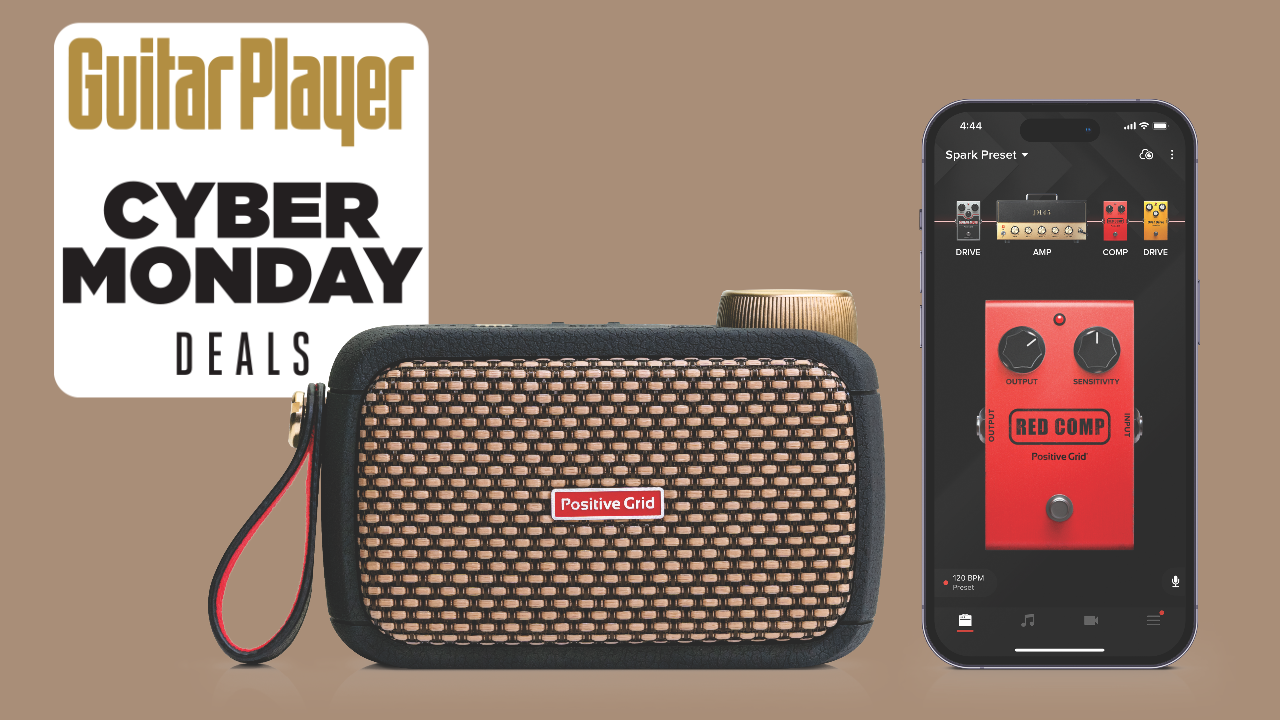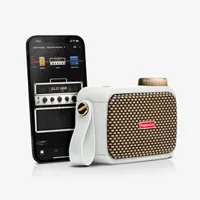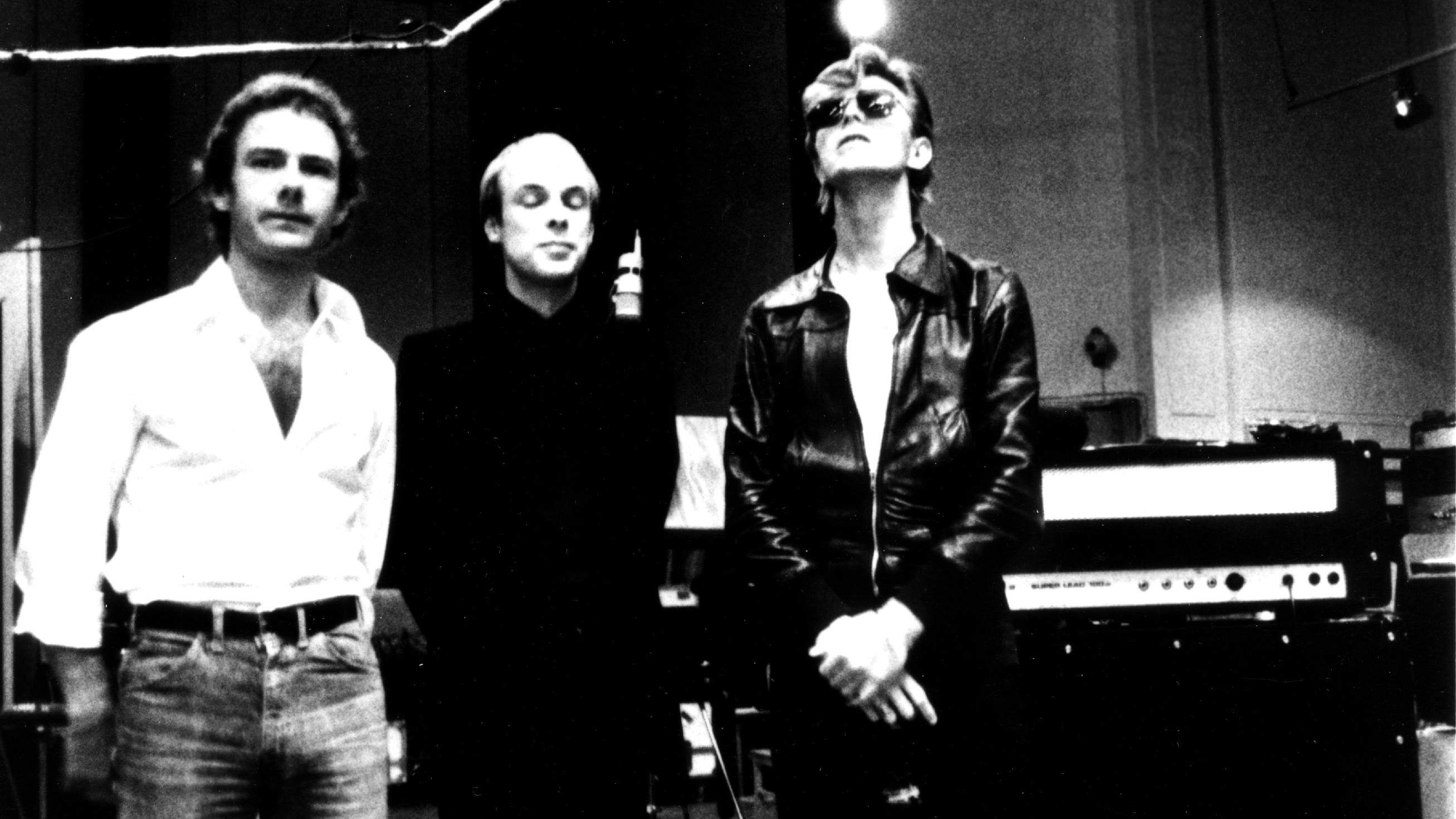My first amp was an embarrassment. My son's first was the Positive Grid Spark Go and it lived up to its name: it ignited something
The Positive Grid Spark Go is $30 off this Cyber Monday

We gave the Positive Grid Spark Go 5/5 when we reviewed it last year, with GP Editor Chris Scapelliti calling it "a pleasingly loud and toneful pint-sized version [of Positive Grid's original Spark smart-amp] that you can toss in a tote bag."
Since then, the Spark Go went on to become one of 2023’s hottest guitar mini amps and Smart speakers: perfect for practicing, for use on the road with headphones, and because of the range of tones you can access by connecting it with the Spark app on your phone and dialing into dozens of classic amp sounds and pedals. Right now, it’s $30 off.
I was so taken with Chris's review that I bought one too. My son was learning to play, and using his phone to look up guitar tabs online. Sometimes I'd check on him and using his phone to look for guitar tabs had become just using his phone. What better solution than get him a mini-amp that you control by an app?
The Spark lived up to its name: it ignited something.
If you’re short on space and need something compact that still gets loud when you need it to, then we don’t think it comes any better than this incredible mini practice amp. The Positive Grid Spark Go is $30 cheaper on the official PG site right now.
But let me tell you about my first amp. Back then, in the mid-80s, it was thought of as small (though it was nowhere near as small as the Spark Go, which is literally smaller than my phone, though far chunkier). A friend of my parents had been in a country-folk band. He and his family were emigrating to New Zealand so he gave me his Marshall amp and speaker. Both were covered in white-leather. It was what you might call a 'cabaret stack'.
The speaker was tall and thin and the head could perch on top in a 'T' shape. It was 30W but it was loud: perfect, I guess, for the kind of small clubs and attentive audiences he'd been playing to.
Unfortunately, to my teenage eyes, and those of my bandmates, it was the least rock'n'roll thing we'd ever seen and it had to go. I swapped it for a couple of bass bins that we added to a PA. It's probably worth thousands today.
So I never had much luck with amps. Over the years, I played less and less electric guitar. As my family grew, so my gear got less and finally, the electric went into a wardrobe and there it sat until my son said he’d like to play. So I had a guitar, but I had no amp or effects pedals.
Unamplified, the electric guitar he held in his hands sounded nothing like the people he wanted to sound like ('classic alternative' like Nirvana and the Pixies, plus new riffs from bands like Arctic Monkeys). Enter the Spark Go. It turned a flat-sounding guitar into a world of sound. I would pass his room and hear him working out Come As You Are or the Arctic Monkeys Do I Wanna Know? and I found myself drawn in. ("Can I have a go?") With headphones on, he could practice until late and when he wasn't using it, I was.
The Spark Go was at the heart of this: portable, easy to use and far less embarrassing than a white leather cabaret stack. It is hours of fun. The app gives you a world of tone at your fingertips in a format he can understand – plus it gives you access to guitar lessons, including how to play famous songs, and backing tracks to play along with.
He went to university this year, and took it with him. So I got myself one. It sits next to my desk at home. When I have five minutes between meetings, I switch it on and have a play.
Check out the full Positive Grid sale here.
Shop more epic Black Friday deals
- Amazon: Guitar gear deals
- Fender store: 50% off guitars
- Guitar Center: Up to 50% off
- Musician's Friend: Up to 60% off sale
- Positive Grid: Save on Spark
- Sweetwater: Save up to 80% on gear
- Waves: Plugins just $19.99
All the latest guitar news, interviews, lessons, reviews, deals and more, direct to your inbox!

Scott is the Content Director of Music at Future plc, responsible for the editorial strategy for online and print brands like Guitar Player, Guitar World, Total Guitar, Louder, Classic Rock, Metal Hammer, Prog, Guitarist and more. He was Editor in Chief of Classic Rock for 10 years and Editor of Total Guitar for 4 years. Scott regularly appears on Classic Rock’s podcast, The 20 Million Club, and was the writer/researcher on 2017’s Mick Ronson documentary Beside Bowie.
Over the years Scott has interviewed players like Jimmy Page, Slash, Brian May, Poison ivy (the Cramps), Lemmy, Johnny Depp (Hollywood Vampires), Mark Knopfler, Robin Guthrie (Cocteau Twins), Will Sergeant (Echo & The Bunnymen), Robert Smith (The Cure), Robbie Robertson (The Band), Jonny Greenwood (Radiohead), Joe Bonamassa, Scotty Moore (Elvis Presley), J Mascis (Dinosaur Jr), Mick Jones and Paul Simonon (The Clash), Pete Shelley (Buzzcocks) and more.

